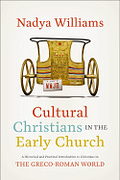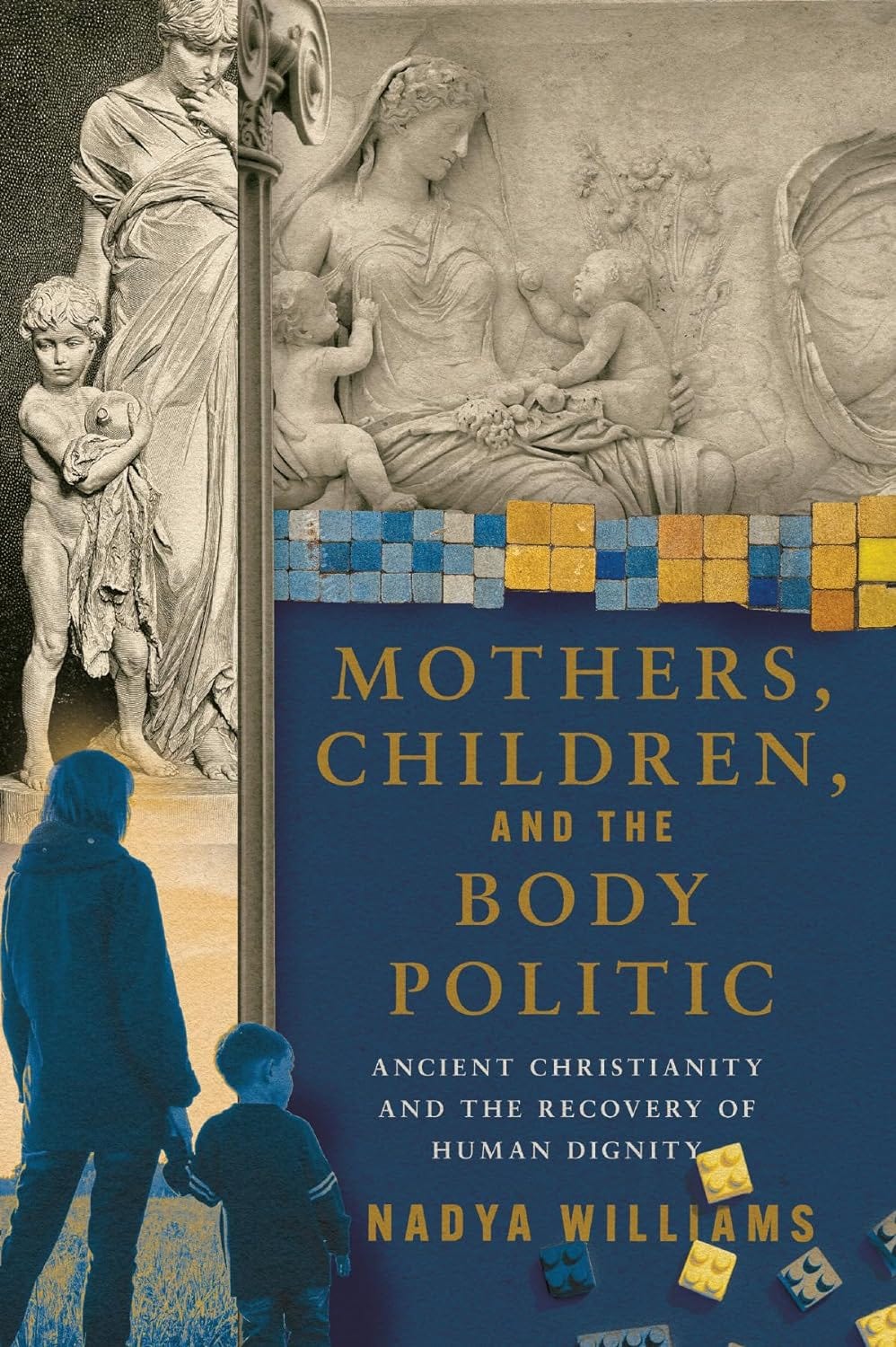Happy 4 Months to Cultural Christians in the Early Church
Slow Read Catch Up Week and a few things I've learned
Cultural Christians in the Early Church was published on November 14th, which means that April 14th marks exactly four months since publication date! This week seems right, therefore, for reflection: just what did I learn from the process of writing my first book and watching it out in the world?
If you’re attentively following the original Slow Read schedule, I must apologize: this was originally going to be one more week of discussing Chapter 3. But hopefully having a catch-up week is helpful for some, and same for the reflections below.
So, here are four lessons I’ve learned from writing my first book. Oh, and first: I would like to do a book drawing! If you would like a signed copy OR would like to gift one to your pastor or a friend, please note in the comments below the post. I will draw 4 names next Wednesday (04/17).
1. Christians Need to Learn More History
I knew this before I wrote Cultural Christians, but conversations since publication have only confirmed it further: Christians are people whose story is rooted in history. Yet Christians today, on average, just like the rest of our society, have a very inadequate understanding of history—including church history.
Why is this a problem? To put it very simply, poor historical understanding feeds poor theology. Conversely, good historical understanding is essential for solid theology.
In particular, my argument about cultural Christians is that if we understand the challenges that the earliest Christians already faced in resisting the Roman culture all around them, we might be better equipped to understand the challenges we face from living in our own culture. In some ways, every one of us is a “cultural Christian,” sometimes without even realizing it.
2. Little Things Add Up to Big Things
Perhaps the most important thing I learned from the entire process is that with so many things in life (reading, writing, exercise, learning a new language) little things add up to big things with time. I’ve seen a number of advice articles over the years from academic researchers who say something along the lines of “if you’re not writing for four hours a day, you’re doing it wrong.”
Really, guys?
Look, I’m a homeschooling mom. That whole “writing for four hours a day” thing is never going to happen. It isn’t realistic for approximately 99.7% of professional academics either, by the way.
But here’s the thing. Are the people who claim they are writing for four hours a day actually producing a new book every year? A few of them, maybe, but not most.
For me, in any case, writing doesn’t require a lot of time sitting in front of my computer. I only sit down when I have a very clear idea in mind for an essay or a chunk of a chapter ready to go in my mind. Then I can get it all on paper in very little time—I rarely write for longer than one hour in a day. I do need a lot of reading time and thinking time, but the thinking time happens all during the day, just living life.
3. A Good Editor is a Treasure Beyond Measure
Self-publishing is popular these days. Here’s why I don’t recommend it for most people. A professional editor brings a lot than just proof-reading. All of the work that editors and copyeditors do is difficult to quantify and explain, but you will notice when it’s absent. As I wrote a while back, “your reading and writing life is better with copyeditors in it.”
For both my books so far, the editors and copyeditors indicated areas where my ideas could potentially come across wrong to certain types of readers, areas where a reference that I thought was clear wouldn’t be clear, and (most difficult for writers) places where something could be cut to improve the book. Even award-winning authors have editors go through their work and improve it! There is no writer in existence whose work wouldn’t get better with the help of a good editor.
4. Writing and Publishing Books is a Team Sport
This brings us to a final, related point. The author’s name is on the cover, but there are a lot of people who make a book much better than it would have been. It’s not just about the editing, but also about every other aspect of book production. I always read the Acknowledgements and encourage you to do the same—it gives you a glimpse of the author’s support team, the incredible people who make the book happen.
And then there are the amazing support people at a press, in addition to the editors, whose praises I just sang above.
Just think of a gorgeous book cover, like for Cultural Christians or this one below for my forthcoming book. This is the work of gifted professionals, who can take some suggestions and key words and create incredibly beautiful cover art!
Question for you:
Whether you are a reader and/or a writer, I would love to hear your thoughts: anything else you would like to add to the above list?
If you have written a book, what key lessons did you learn from writing your first book?





Happy 4 month bookday! And your point about our need to learn more history is so true. Something I've been thinking about a lot over the past decade and some.
I love these reflections, Nadya! Congratulations on 4 months! I can't wait to read your forthcoming books.